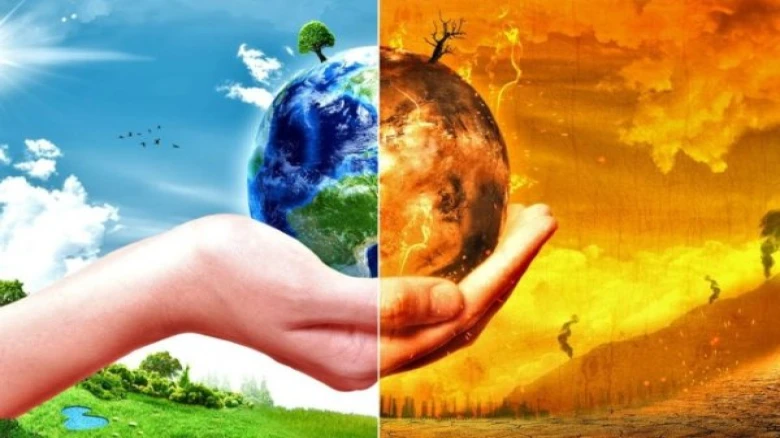Delhi recorded its highest-ever temperature, with the mercury rising above 49 degrees Celsius at two city weather stations.
Digital Desk: Temperatures in India rose by 0.7 degrees Celsius (1.3 degrees Fahrenheit) between 1901 and 2018, altering the Indian climate. In May 2022, Pakistan and India experienced a severe heatwave. The temperature rose to 51°C. Such heatwaves are becoming 100 times more likely as a result of climate change.
According to an Indian expert statement "This heatwave is putting human survival to the test,". As the recent Covid-19 pandemic demonstrated, India (and Pakistan) are notoriously bad at tracking cause of death. However, the heatwave's effects can already be measured in other ways.
Wheat output in India fell by 3% year on year as the crop shrivelled in the fields. Wheat flour prices have risen by 13% year on year, forcing the Indian government to scramble to ban exports of the grain. The heat has also increased demand for electricity, which is one of the major causes of India's power crisis, as hot weather has been accompanied by more frequent power outages.
Have you ever Imagined what the reason behind the rising Intense heat?
Climate change is the change in weather patterns caused by industrial emissions of greenhouse gases such as carbon dioxide and methane.
According to a study conducted by the United Kingdom's national weather service, the likelihood of a record-breaking heatwave in north-west India and Pakistan has increased by a factor of 100.
Previously, a severe heatwave would occur once every three centuries; now, North Indians and Pakistanis can expect one every three years.
Assam, three thousand kilometres away, experienced such heavy rainfall that floods crippled large parts of the state, affecting more than seven lakh people, leaving them homeless and struck in poverty.
According to a study published in 2021 by the Council on Energy, Environment, and Water, more than 80% of Indians live in climate-vulnerable districts. A one-degree increase in temperature could cost the country 3% of its gross domestic product, with the poor being disproportionately impacted.
Despite the seriousness of the threat, climate change is barely mentioned in Indian politics. It is barely discussed among chief ministers and the prime minister. This isn't just a problem in electoral politics. Climate change is rarely mentioned by political commentators and pundits as one of India's major challenges.
It is a well-known fact that India will experience more heat waves in the future. However, this did not make it to the Delhi government's policy-making stage. Despite the fact that Delhi has one of India's highest per capita incomes and is home to knowledge-based industries such as higher education and journalism, this is the case. Cities like Ahmedabad, for example, have had heat plans in place for more than a decade.
Many of India's complex socioeconomic problems are, at least in part, the result of climate change, which is still poorly understood in some cases. Take climate migration, for example. As floods inundate fields, heatwaves render areas uninhabitable, and rising sea levels push coastlines back, it's clear that displaced Indians will seek refuge elsewhere.
India's politics and government, on the other hand, refuse to acknowledge this phenomenon, which could have serious consequences.
Residents in southern West Bengal are being forced to leave their homes and occupations to migrate to cities to do back-breaking, menial work such as garbage sorting due to climate change-related events. As riots erupted in Delhi in April, a wave of xenophobic hysteria swept the country against so-called Bangladeshis – a catch-all term for climate migrants from India's section of the Bengal Delta.
It's now high time that Indian politicians alongside activists and the people too, to move forward and take a initiative to make a change, Climate change must be discussed in the same way that communalism, caste, and inflation are discussed in the country. It is now undeniably a significant influence on the lives of Indians.

Leave A Comment